Under President Xi Jinping's leadership, China has entered a bold new chapter in governance-one that seeks to harmonize socialist ideals with the realities of a rapidly modernizing nation. This book delves into the policies and philosophies driving this transformation, exploring how Xi's vision is reshaping China's political, economic, and social landscapes.At the core of Xi's agenda is an unwavering commitment to rooting out corruption and fostering transparency. Since launching his anti-corruption campaign (¿¿¿ f¿n f¿bài) in 2012, China has witnessed a sweeping crackdown on graft, targeting high-ranking officials and entrenched networks alike. This "zero-tolerance" (¿¿¿ líng róngr¿n) policy reflects Xi's determination to rebuild public trust and strengthen institutional accountability. Equally central is Xi's concept of "Socialist Governance with Chinese Characteristics" (¿¿¿¿¿¿¿¿¿¿ zh¿ngguó tèsè shèhuìzh¿yì zhìl¿), which balances market-driven growth with state-led oversight. By prioritizing "common prosperity" (¿¿¿¿ gòngtóng fùyù), the government aims to narrow wealth gaps and ensure equitable development. Programs like the Belt and Road Initiative (¿¿¿¿ y¿ dài y¿ lù) and rural revitalization efforts exemplify this approach, projecting China's influence abroad while addressing domestic inequalities.Xi's leadership is defined by its ability to merge ideological clarity with pragmatic adaptation. Whether navigating technological innovation, demographic shifts, or global geopolitics, China's policies under Xi reflect a blend of historical continuity and forward-looking reform.This book examines how these strategies coalesce into a broader vision of "national rejuvenation" (¿¿¿¿ mínzú fùx¿ng)-a goal rooted in China's cultural heritage yet oriented toward global leadership. Through case studies, policy analysis, and on-the-ground insights, it offers a nuanced portrait of modern China's governance under Xi Jinping.
Bitte wählen Sie Ihr Anliegen aus.
Rechnungen
Retourenschein anfordern
Bestellstatus
Storno

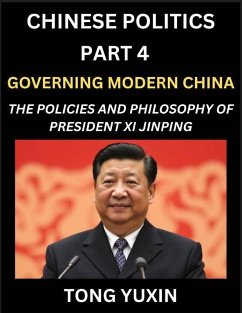
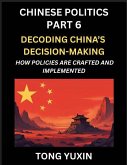
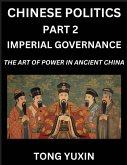
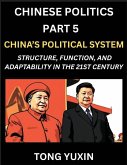
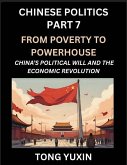

![A Synoptical View of the Literature for University and Teachers' Examinations for 1886 [microform]: With the Characteristics of Each Selection Illustr A Synoptical View of the Literature for University and Teachers' Examinations for 1886 [microform]: With the Characteristics of Each Selection Illustr](https://bilder.buecher.de/produkte/66/66130/66130173m.jpg)
